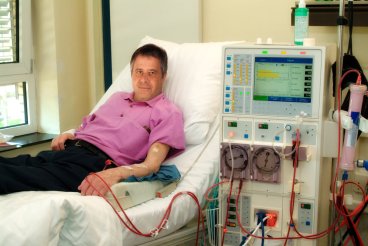Chronic Kidney Disease (CKD) is a silent killer that has been on the rise in U.S. over the past decade. CKD is a condition in which the kidneys stop working and are unable to remove fluid and waste from the body. There are typically no symptoms until 75% – 80% of kidney function is lost, at which point eventual kidney failure is likely and dialysis and/or a kidney transplant become necessary.
Startling Facts About Chronic Kidney Disease (CKD)
In a 2014 study conducted by the American Kidney Fund, they found that:
- Kidney disease is the 9th leading cause of death in the U.S.
- Chronic Kidney Disease (CKD) affects approximately 31 million people in the U.S. alone (roughly 10% of the adult population)
- 9 out of 10 people who have stage 3 CKD (moderately decreased kidney function) are unaware that they have it
- CKD is more common in women BUT men with CKD are 50% more likely to progress to kidney failure
- African Americans, Native Americans, Asians, and Hispanics are at higher risk for kidney failure
Pretty sobering, isn’t it?
3 Reasons Why Chronic Kidney Disease (CKD) is on the Rise
1. People are living longer.
From roughly age 50 onward, there is a decrease in our kidneys’ ability to function properly. While it is a normal part of the aging process, it also means that past age 60 or so, people have an increased risk of developing CKD. Increased access to better healthcare, nutrition, and overall quality of life has lead to longer life expectancy, which means that more people are living well into that at-risk age range than ever before.
2. Diabetes is on the rise, too.
Diabetes is the cause of almost 45% of all new cases of kidney failure. As of 2011, an estimated 25.8 million people have diabetes – diagnosed and undiagnosed – and that figure is rising. Of those people, 40% or so will develop CKD at some point.
3. High blood pressure
High blood pressure is the cause of 28% of all new cases of kidney failure, making it second only to diabetes. According to the CDC, over 70 million adults in the U.S. have high blood pressure. That’s 1 out of every 3 adults and nearly a third of them aren’t even aware that they have it!
The percentage of adults in the U.S. age 30 or older who have CKD is expected to increase from 13.2% at present to 14.4% in 2020 and then again to 16.7% in 2030. If those numbers surprise you, you’re not alone. Even researchers and healthcare professionals are taken aback by the statistics:
“We were surprised by the high probability of developing CKD during a lifetime,” said Thomas Hoerger, PhD, a health economist and senior fellow at RTI International. “It’s higher than most diseases that immediately jump to mind, and while the likelihood of chronic kidney disease progressing to complete kidney failure is much lower, CKD itself has been linked to a number of comorbidities and adverse health outcomes.”
Symptoms of Chronic Kidney Disease (CKD)
Although the symptoms of Chronic Kidney Disease are often not noticed by patients until the disease has reached an advanced stage, there are still signs that you can look out for:
- Nausea
- Vomiting
- Loss of appetite
- Fatigue and weakness
- Sleep problems
- Changes in urine output
- Decreased mental sharpness
- Muscle twitches and cramps
- Hiccups
- Swelling of feet and ankles
- Persistent itching
- Chest pain, if fluid builds up around the lining of the heart
- Shortness of breath, if fluid builds up in the lungs
- High blood pressure that is difficult to control
If you or someone you know is presenting with one or more of these symptoms, they could be risk indicators for kidney disease. A thorough examination by your doctor is the best way to confirm (or rule out!) a diagnosis so that you can begin any necessary treatment as soon as possible.
Sources:
- https://www.kidney.org/news/kidney-disease-on-the-rise
- http://bottomlinehealth.com/deadly-kidney-disease-is-on-the-rise/
- http://www.nytimes.com/2008/11/18/health/18kidneydisease.html?ref=health&_r=0
- http://www.kidneyfund.org/about-us/assets/pdfs/akf14_kidney-disease-statistics-2014.pdf
- http://www.mayoclinic.org/diseases-conditions/kidney-disease/basics/symptoms/con-20026778

